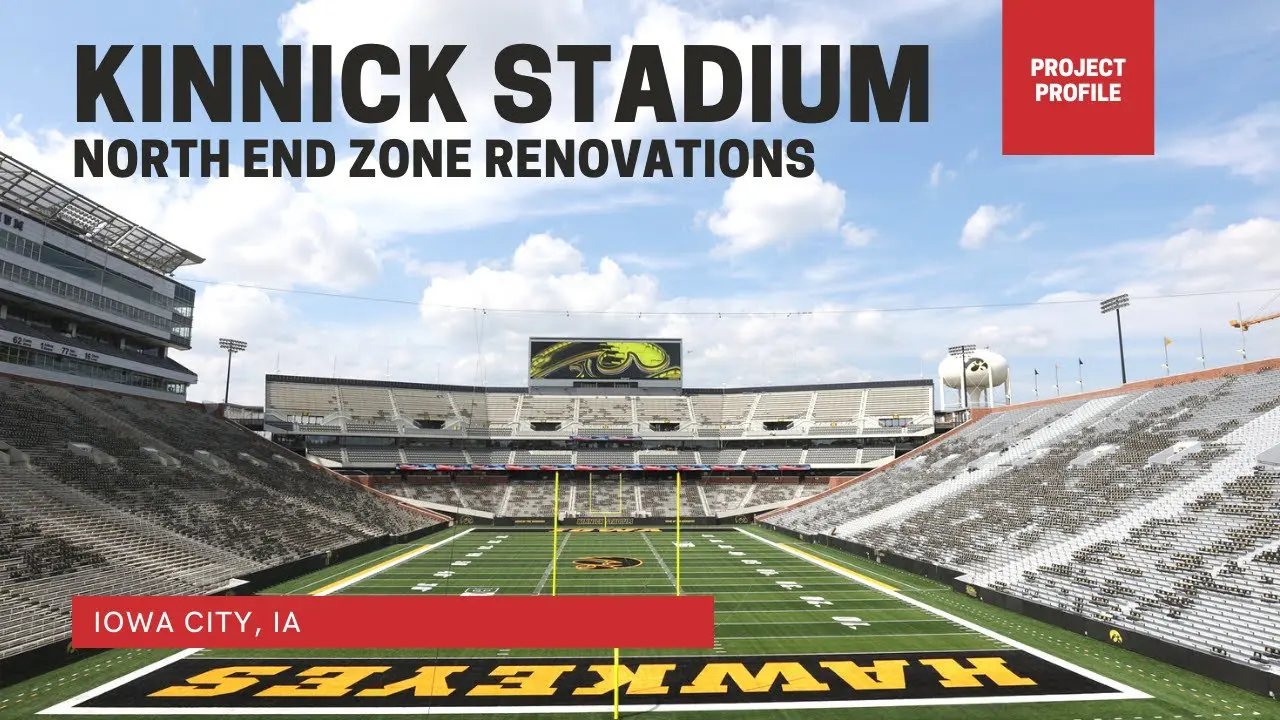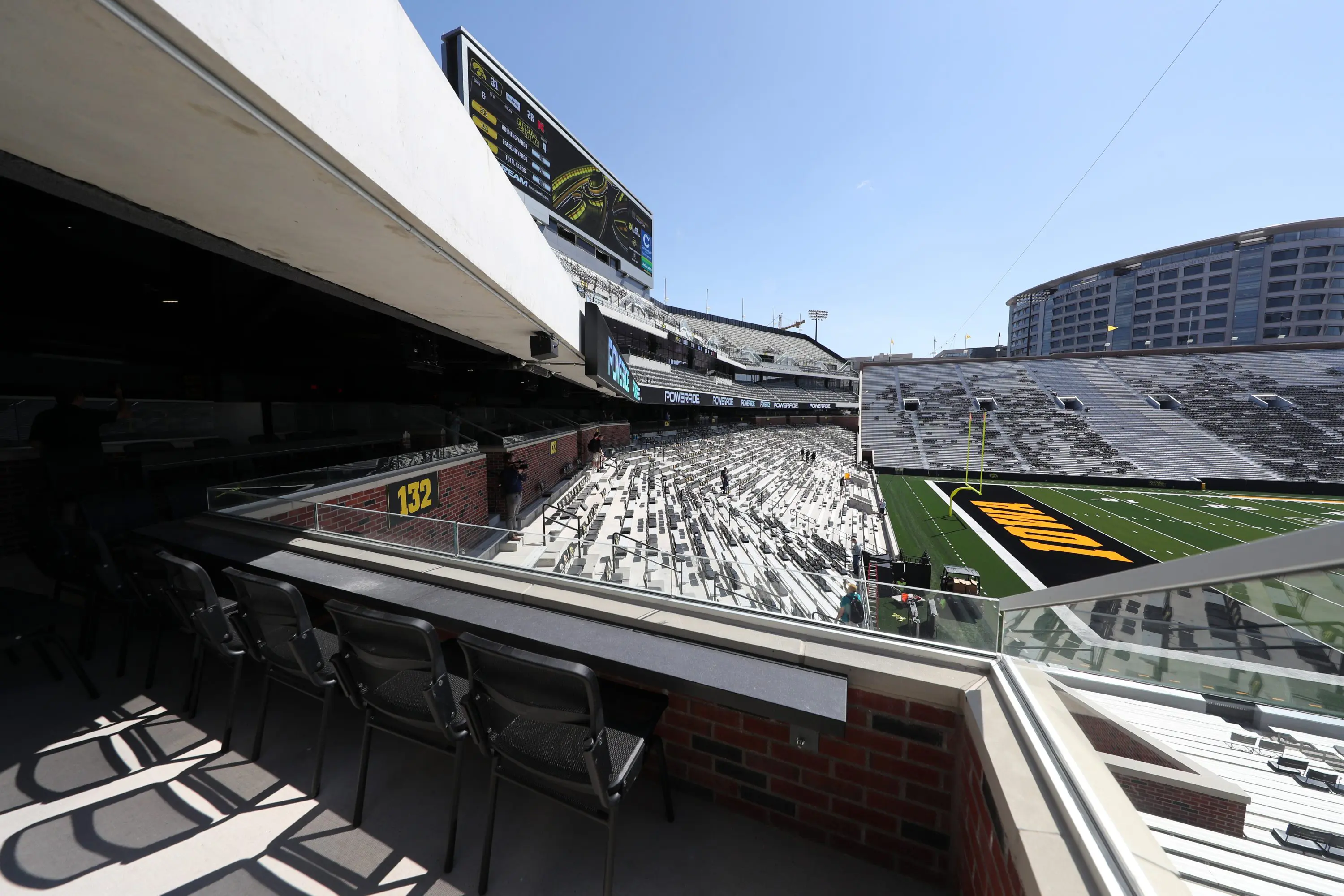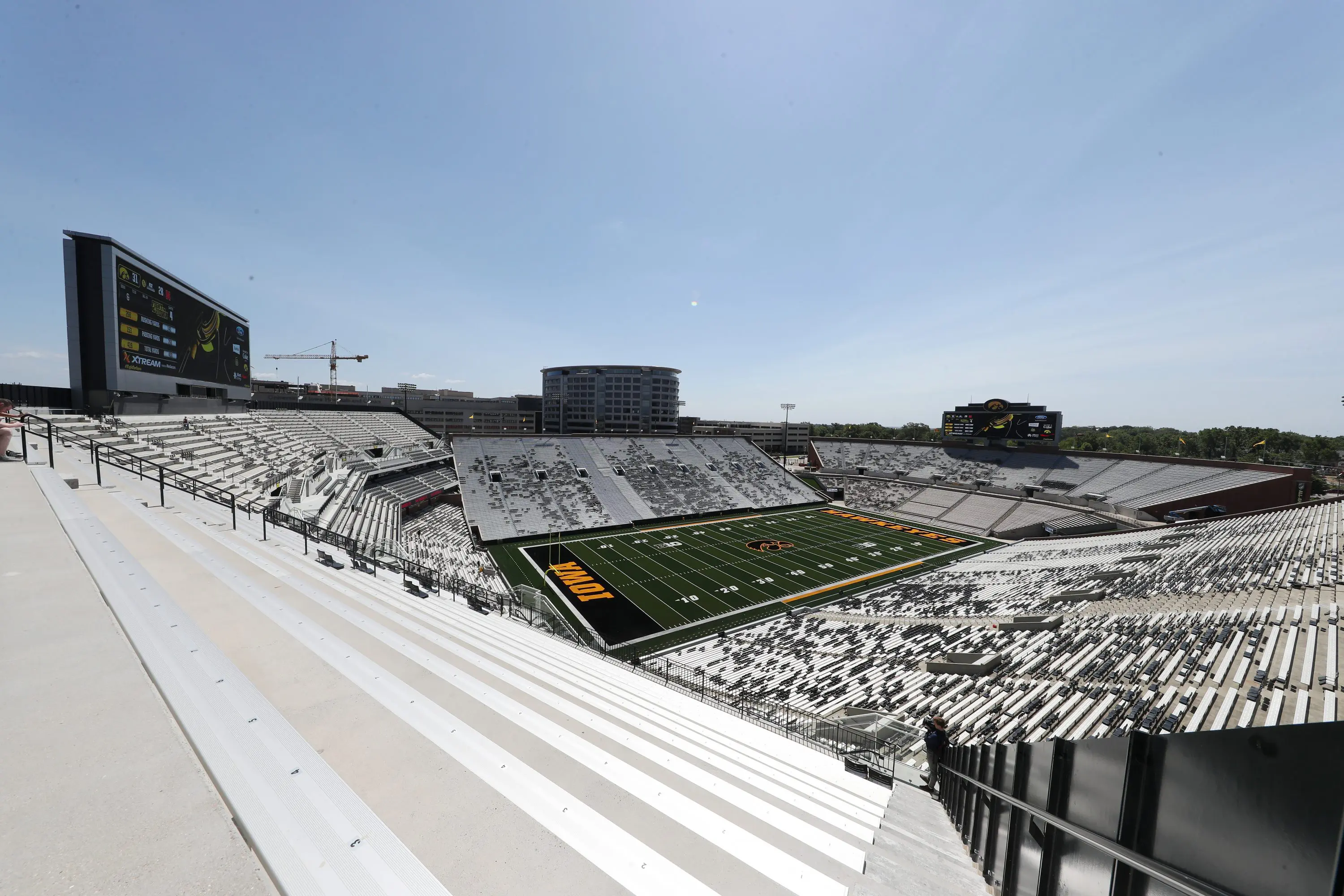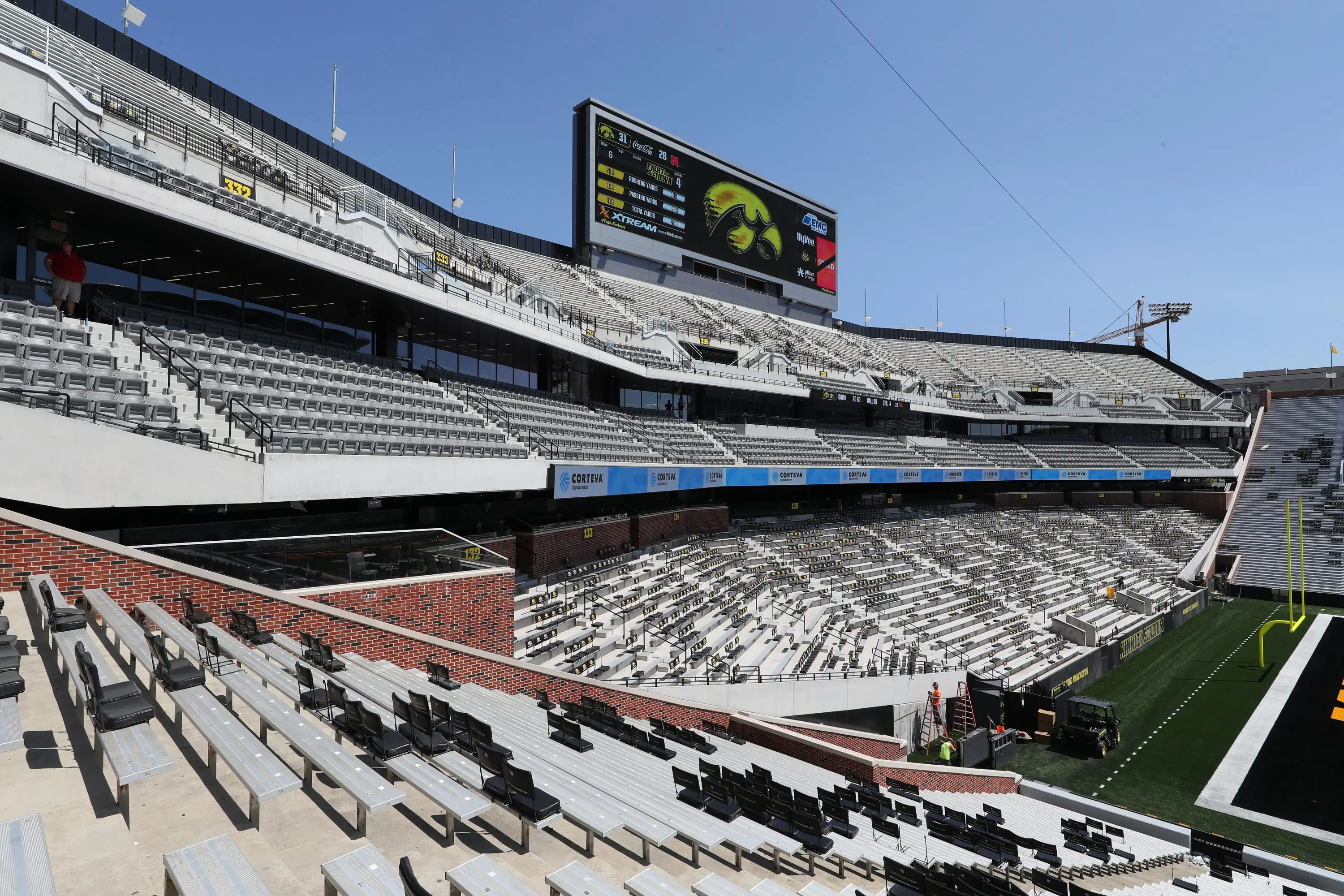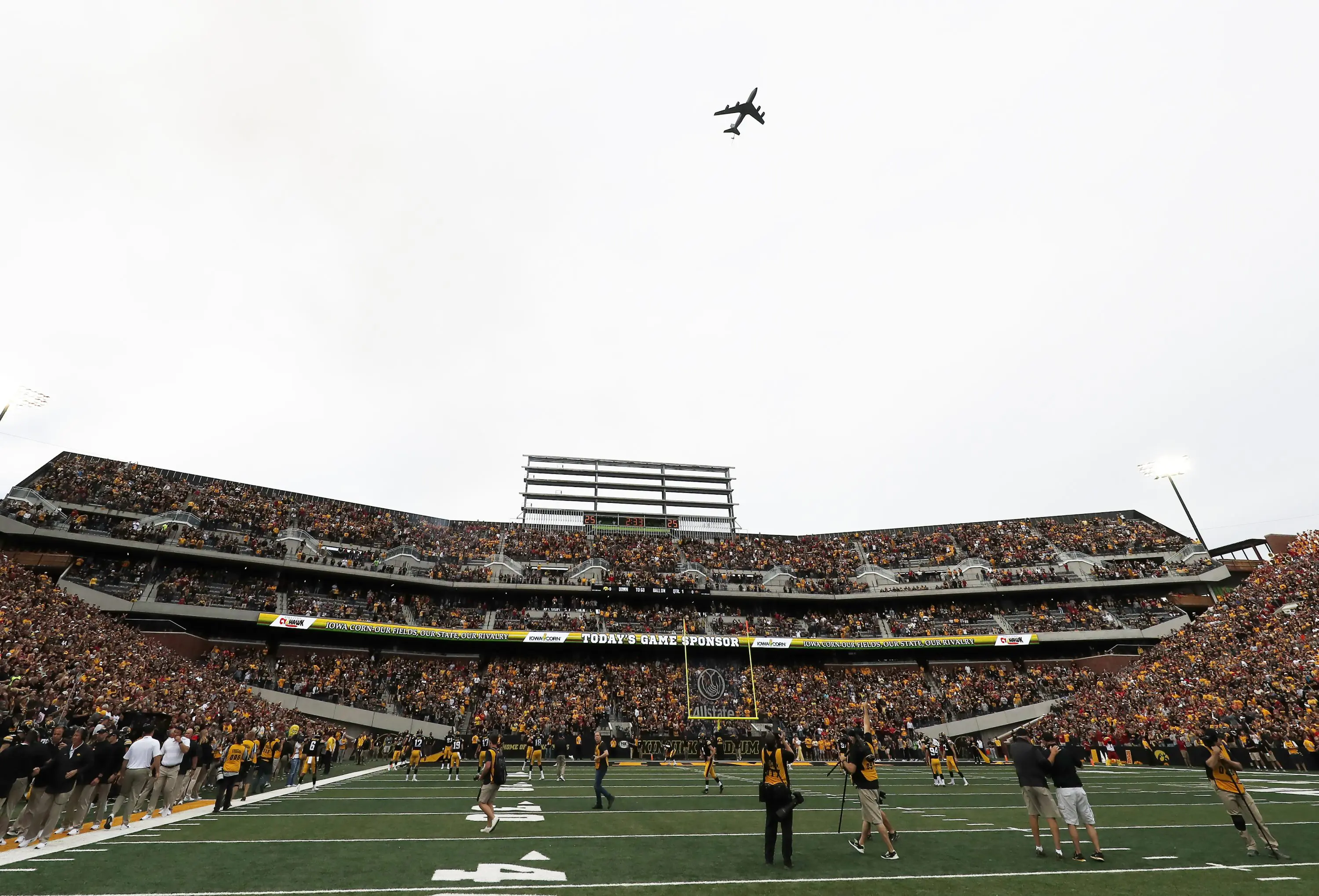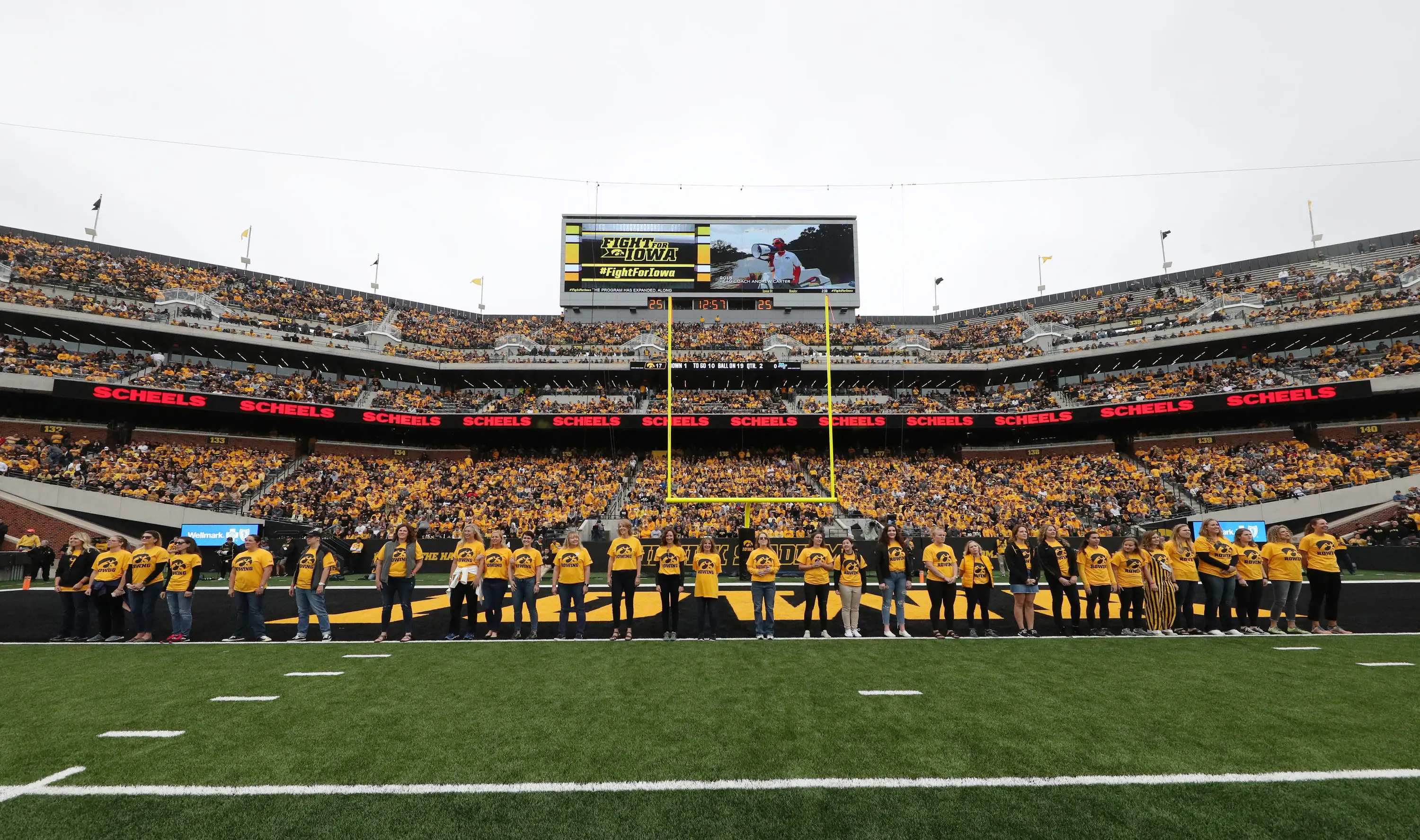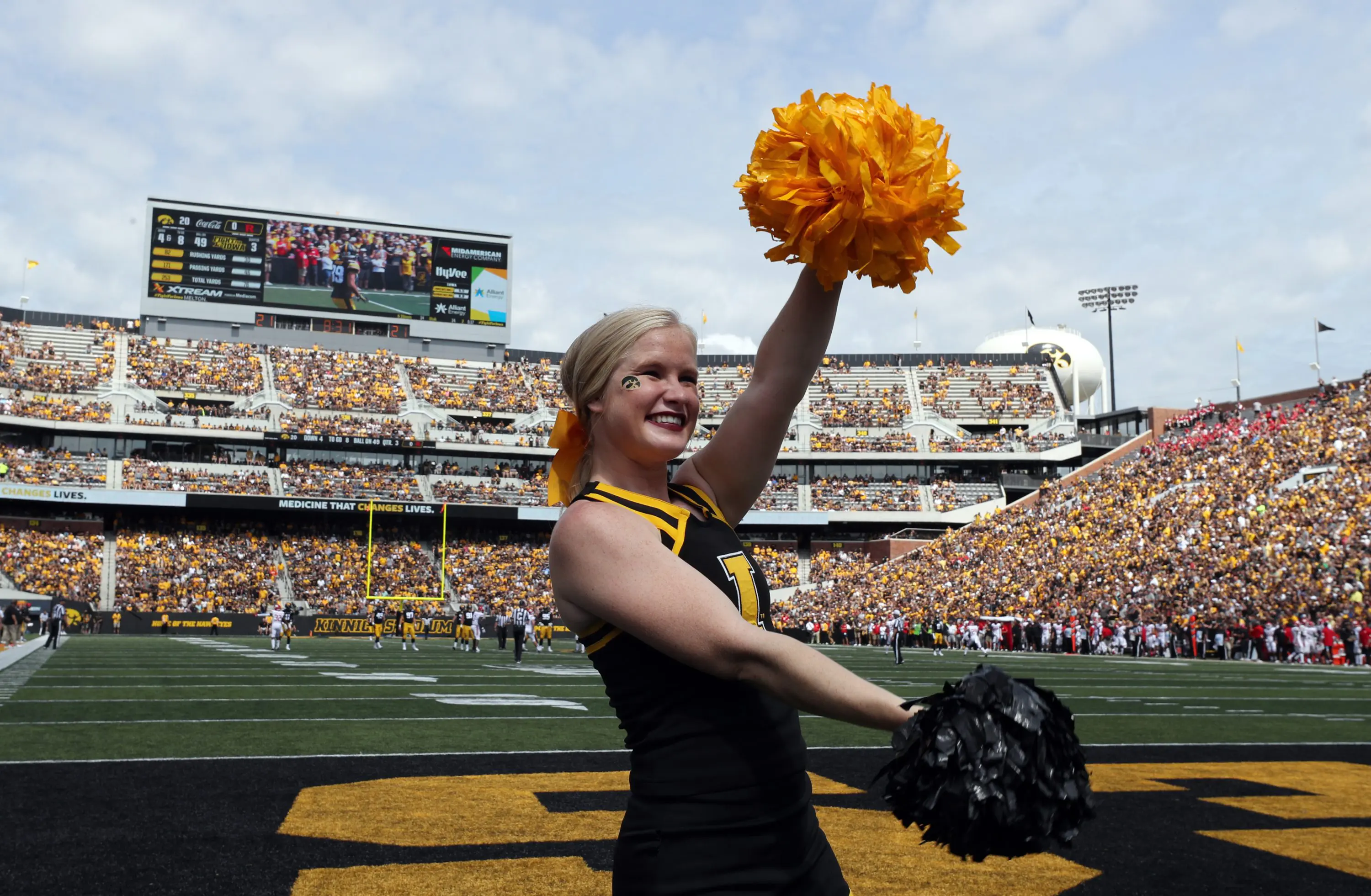The University of Iowa’s rebuilt north end zone grandstand at Kinnick Stadium pays homage to the past. The Kinnick Edge project replaces the existing general admission seating bowl in the north end zone with upper and lower general admission seating bowls, two concourses, and a premium club level.
Both concourses increase and improve concession and restroom facilities. The main concourse on the street level enjoys an unobstructed view of the field. The upper concourse has open decks at the east and west ends with views of the field and places where fans can congregate. Between the two concourse levels is a premium club level.
The footprint of the site is very small, pinched to the north by Evashevski Drive. To fit, the new program requires a three-deck superstructure that cantilevers up and partially over Evashevski Drive. The design takes advantage of modem materials, creating a unique façade for the club and upper concourse while aligning with the geometry and massing of historic east and west towers. The exterior of the upper levels is a combination of glass and precast architectural panels that wrap the north end to provide a windbreak enclosure. The new scoreboard features a logo on the exterior and, with its elevated position above the upper bowl, serves as a beacon to the north that is visible for miles.
Because of the proximity of a street on the north side of the stadium, the new construction created more vertical space. In addition to creating a louder environment inside the stadium, about the only thing Iowa coach Kirk Ferentz requested of the new space, the vertical nature of the facility created closer viewing opportunities. The project was funded entirely through the sale of the area’s premium seats, donations, and reserves from Iowa’s self-supporting athletics department.

 605.336.1180
605.336.1180


